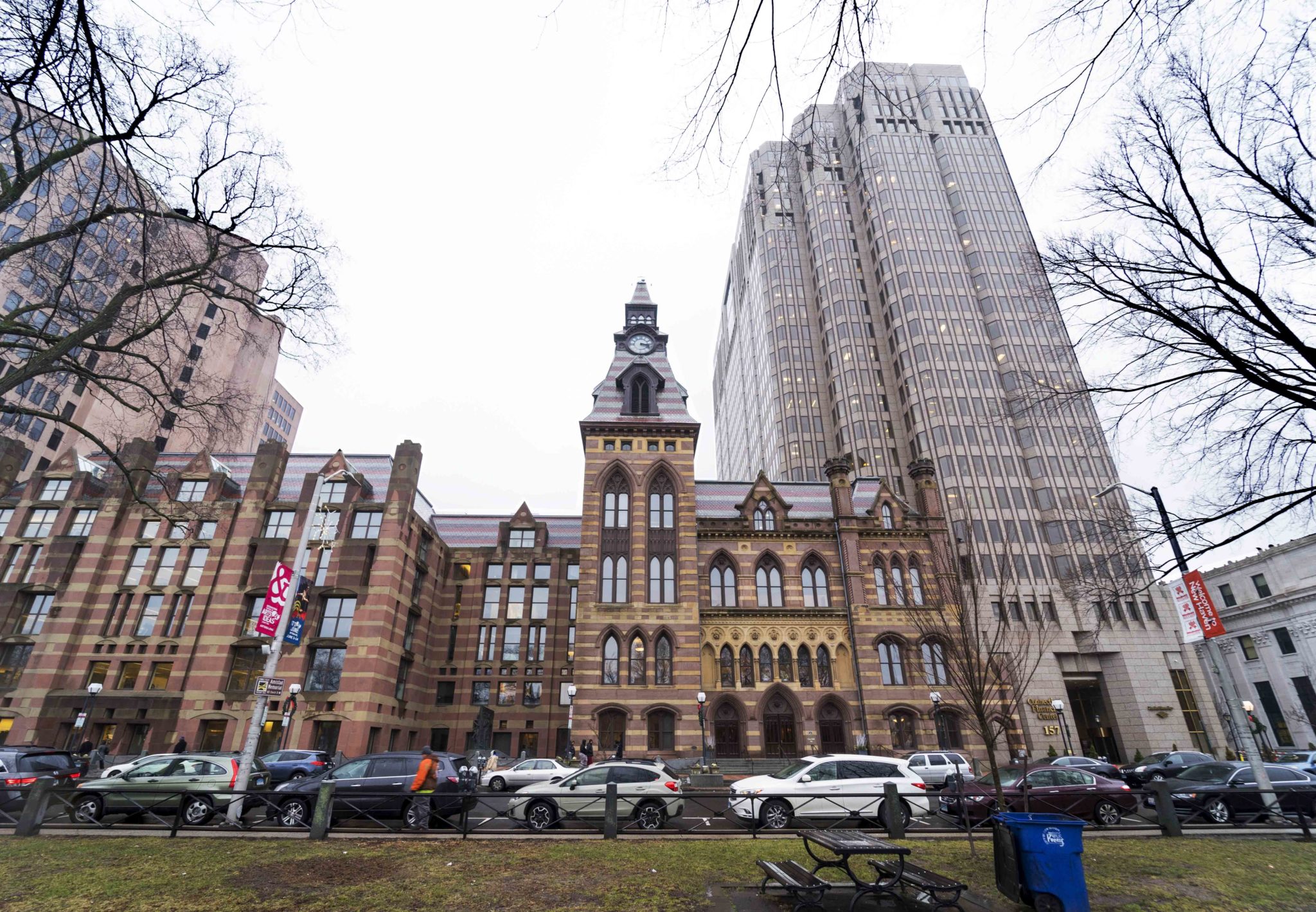
Nat Kerman
Mayor Toni Harp has called for an 11 percent property tax hike in the Elm City budget that she introduced at City Hall last Friday.
Harp said the proposed budget, which would cover the fiscal year beginning on July 1, was especially difficult to draft given the anticipated decrease in state aid and building permit fees, cuts that would leave the city nearly $17 million short in revenue. Since the Connecticut state budget was not adopted until October 2017 — 123 days after the original deadline — New Haven faced significant fiscal uncertainty and cuts in state funding, especially to the Board of Education.
“Every year the proposed budget must articulate the city’s dedication to provide essential services in the form of public safety, public education and economic development often in the face of dire needs elsewhere,” Harp said in the letter introducing her budget. “It is safe to say that this proposed budget is the most difficult one I have had to submit.”
Based on the proposed budget, the mill rate — the tax each property owner pays per $1,000 worth of property — will increase by 11 percent from 38.68 to 42.98 mills, the first tax increase in two years. In addition to proposing this increase, Harp hopes to recover the lost funds by increasing the efficiency among city departments and seeking concessions in labor costs. Mayoral spokesman Laurence Grotheer said that the city will ask all its partners — including Yale, Yale New Haven Hospital, labor unions and the state — to get “creative” in ways to increase donations to help the city.
The proposed budget, which will go through a hearing and amendment process by the Board of Alders before its deadline in early June, relies on $3.6 million in concessions from municipal employees. At the press conference on Friday, Harp said she hopes to negotiate with employees rather than making layoffs, according to the New Haven Independent.
In addition, the budget proposes a $1 million withdrawal from the city’s rainy day fund, reversing a two-year trend of adding to the already depleted fund.
New Haven Economic Development Administrator Matthew Nemerson SOM ’81 said the tax increase and concessions resulted from the city’s lack of alternatives. Nemerson noted that Hartford has a lower mill rate than New Haven and is receiving close to $50 million from the state. Because of the state’s budget, New Haven has a smaller revenue stream along with greater mandated spending for institutions like the school board
Nemerson said he hopes the lack of funding does not stifle New Haven’s growth.
“We are one of the faster growing cities in New England, and if our taxes go up, if we don’t have funds to do interesting things to make the city more livable, we will choke off one of the fastest growing and best sources of growth for the state and new jobs to the region,” he said.
Ward 7 Alder Abigail Roth ’90 LAW ’94 she that she has already started to hear concerns about the property tax increase from constituents. The tax hike could cause people to relocate and property evaluations to go down, she added, resulting in less rather than more revenue.
“I think there are big structural challenges with the budget. We cannot tax our way out of it,” Roth said. “I am concerned that that level of taxation will end up ultimately driving down our tax base.”
For Roth, the solution will require something other than increasing the property tax rate by 11 percent — a move she sees as “really harmful” for the city.
Although the New Haven Board of Education approved a budget last week that included a $10 million increase from the city, Harp’s budget only grants a $5 million hike. Last year, the Board of Alders’ final budget included a $5 million increase, leaving the New Haven Public Schools with a $3 million deficit.
Ward 26 Alder and President Pro Tempore Jeanette Morrison said the budget process will be “grueling” and demand a thorough look at each portion of the proposal. She said the Board of Alders will likely have to make tough decisions and that she was concerned about cuts to school programming and nonprofit organizations.
“If there’s not enough money to educate our kids, to make sure that they’re learning various skill sets through the nonprofits, that makes me worry,” Morrison said. “If young people don’t have different things to do, it’s not going to be positive.”
Ward 25 Alder and Vice-Chair of the Finance Committee Adam Marchand GRD ’99, said it is “sobering” to deal with the reality of the budget constraints coming from the state capital. Though he said he would not “rush to judgement” on the tax hike, Marchand noted that the budget can change in “meaningful ways” after the Board of Alders’ hearing and amendment process.
Ward 27 Alder and Majority Leader Richard Furlow said that, just as the mayor has worked hard to draft the budget proposal, the Board of Alders will look to find adjustments that will better serve New Haven residents. While he is unsure whether there will be major changes to the proposal, Furlow said, every alder on the board will look through the budget in a collaborative effort to produce the most effective outcome.
“Every single item is a concern to us,” he said. “Every alder on the board is going to be looking at it because we all have our areas of interest, things that we would like to see increased or decreased.”
The first public meeting on the budget will be held on March 12.
Ashna Gupta | ashna.gupta@yale.edu
Isabel Bysiewicz | isabel.bysiewicz@yale.edu







